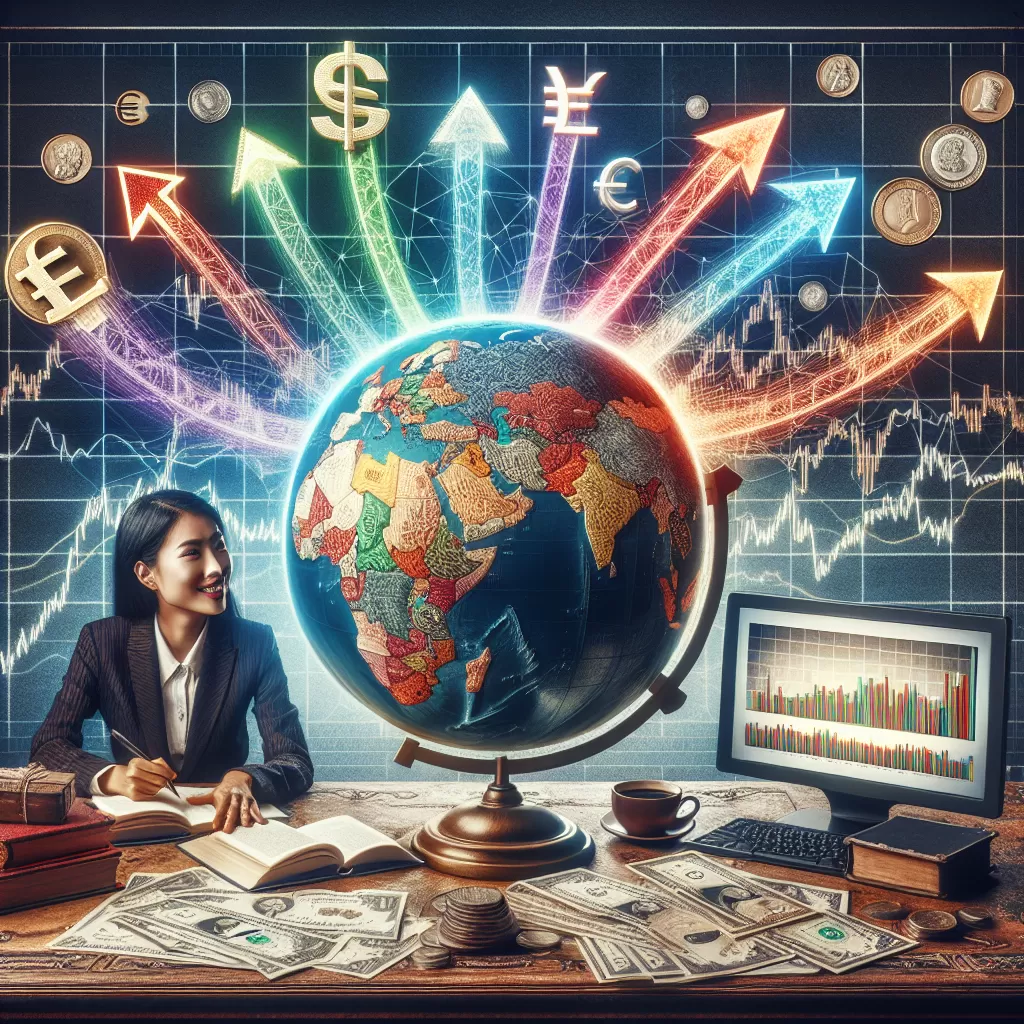What Is Foreign Exchange System
Follow Currency Mart April 10, 2024
Where to purchase Foreign Currencies?

What is the Foreign Exchange System?
Foreign Exchange, also known as forex or FX, is a global financial market where currencies are traded. As the Guardian of foreign exchange, I can tell you that it is the world's largest market with an average daily trading volume exceeding $5 trillion. Its grand scale outstrips even the combined total of global equity markets.How Does the Foreign Exchange System Work?
In essence, the concept behind foreign exchange is simple. People exchange one currency for another at an agreed-upon rate. This is something most of us have done when traveling to a foreign country. However, the world of financial foreign exchange runs much deeper and is considerably more sophisticated. The rates at which these currencies trade against each other, known as exchange rates, constantly fluctuate due to a variety of economic factors. These include interest rates, inflation, political stability, and economic performance. For example, when Canada's economy strengthens compared to the United States, the Canadian dollar will rise against the American dollar in this vast ocean of exchange.The Structure of the Foreign Exchange Market
Unlike the stock market, there is no centralized exchange for forex trading. Rather, transactions occur through a network of computers belonging to banks, firms, and individual traders worldwide. This decentralized nature means the foreign exchange market is active 24 hours a day, 5 days a week, with the only breaks occurring over the weekend. There are three main venues for forex trading. The largest of these is the 'interbank market', where large banks trade among themselves, typically on behalf of major international corporations. The second includes futures and forward markets, which more often involve businesses hedging their foreign currency exposure. Lastly, there are currency exchange companies offering retail forex trading to individuals and smaller institutions.Major Players in the Foreign Exchange Market
The major players in the forex market are largely the same as those in other financial markets. They include central banks, commercial banks, non-banking forex companies, and multinational corporations. Individuals and smaller institutions often trade via brokers or non-bank forex companies. Central banks are perhaps the most influential entities, as they have the power to adjust their country's official interest rate. This, in turn, can attract or repel foreign investors, causing the currency's value to fluctuate.Factors Influencing Exchange Rates
As mentioned earlier, a multitude of factors weighs on exchange rates. Here are a few in more detail: Interest rates are an interesting puzzle piece. When a nation's central bank raises its interest rate, it often results in a strengthened currency, as it can drive foreign investors to invest in that country in search of higher returns. Inflation is another key factor. Lower inflation rates are typically seen to bolster a currency's value because purchasing power is relatively high. Geopolitical Stability and Economic Performance greatly affect an economy's attractiveness to foreign investors. Typically, a country with a stable, growing economy will attract foreign investors, which will increase the demand for its currency and cause its value to rise.Forecasting Exchange Rate Movements
Predicting future exchange rates is a complex task, with many seasoned traders using both technical and fundamental analysis. Technical analysis involves studying price charts to identify patterns and trends, while fundamental analysis looks at the overall health of an economy, including factors such as growth, inflation, and political stability.Conclusion
Understanding the foreign exchange system paves the way in navigating the sea of currency fluctuations. Armed with the knowledge of its functioning, its major players, and the factors influencing it, you will be well-equipped to trade or to make informed decisions about your international monetary needs. Remember that the waves in this vast ocean never cease; they merely morph in response to the ever-changing global economic climates.
Where to purchase Foreign Currencies?